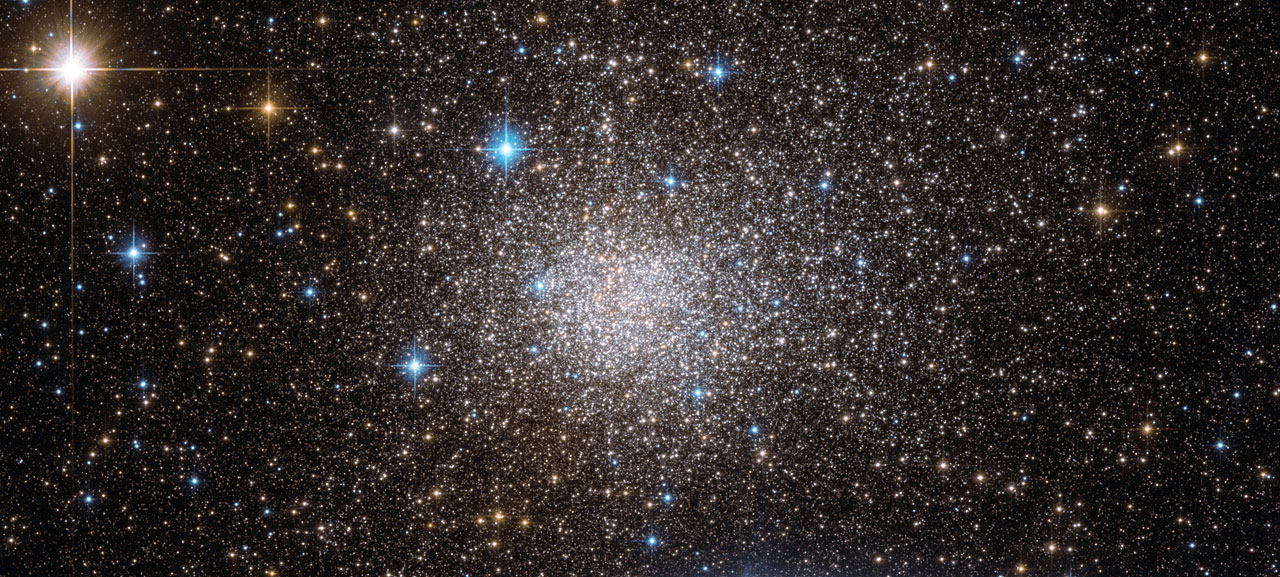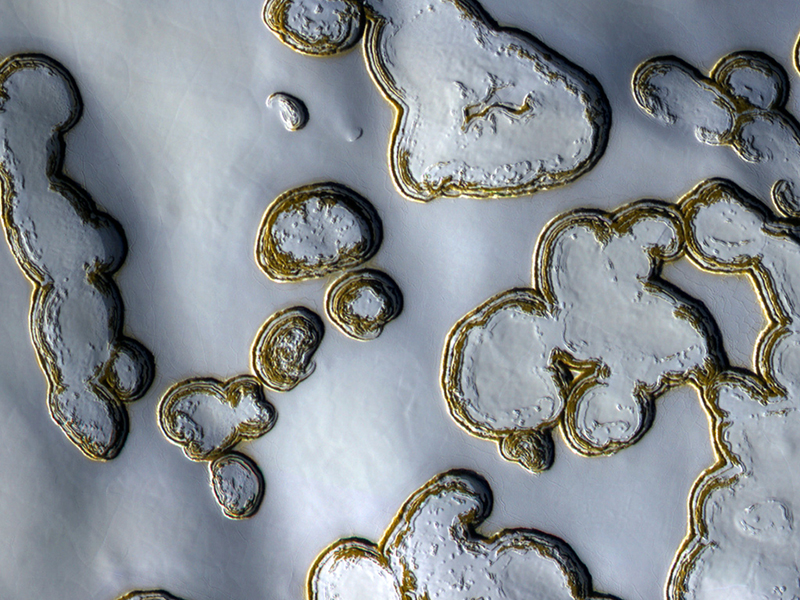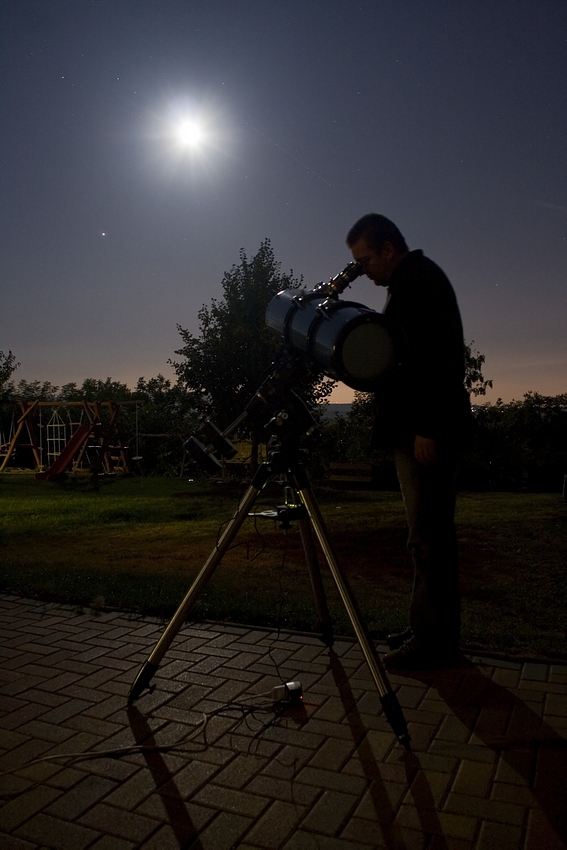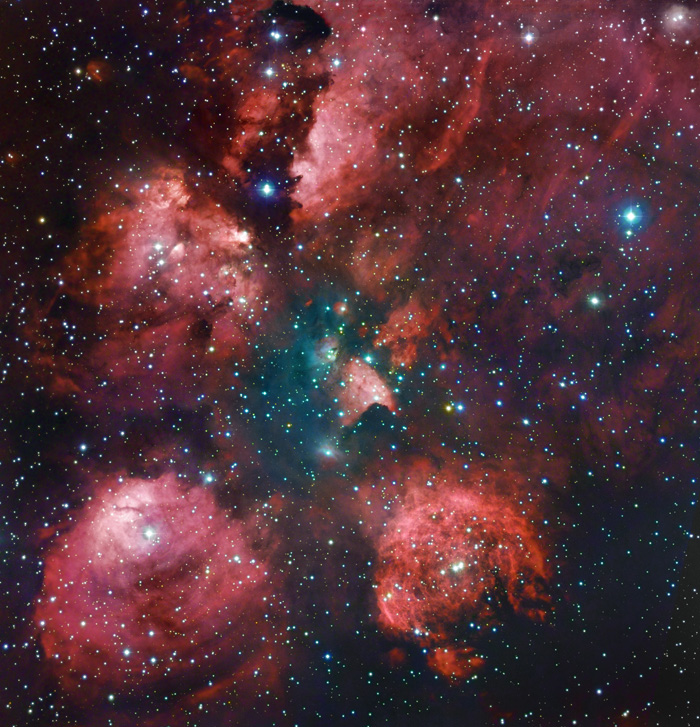Recent Submissions: 2011 September 16-18
Recent Submissions: 2011 September 16-18
________________________________________________________________________________________
Please post your images here.
Please see this thread before posting images; posting images demonstrates your
agreement with the possible uses for your image.
Please keep images under 400K, whether hotlinked or uploaded.
Thank you!
_______________________________________________________________________________________
<- Previous submissions
[c]«« Discuss Anything in Astronomy «» Visit The Asterisk Main Page «» See Introductory Astonomy Lectures »»
[hr][/hr]«« Introduce Yourself «» Please Read the Rules »»[/b][/c]
Please post your images here.
Please see this thread before posting images; posting images demonstrates your
agreement with the possible uses for your image.
Please keep images under 400K, whether hotlinked or uploaded.
Thank you!
_______________________________________________________________________________________
<- Previous submissions
[c]«« Discuss Anything in Astronomy «» Visit The Asterisk Main Page «» See Introductory Astonomy Lectures »»
[hr][/hr]«« Introduce Yourself «» Please Read the Rules »»[/b][/c]
A closed mouth gathers no foot.
Re: Recent Submissions
Active Region Ar1289
http://www.fobos.es
Copyright: Jesús Carmona de Argila
[attachment=3]sol140911.jpg[/attachment]
Speck on the Sun
Copyright: Nathan Fretta
Copyright: Mariano Ribas
[attachment=1]Full Moon color september 12.jpg[/attachment]
NGC6888 in Narrowband
Copyright: Daniel Meek
[attachment=0]NGC6888_Meek.jpg[/attachment]
Into the Depths of the Lagoon Nebula
http://www.spitzer.caltech.edu/images/4 ... oon-Nebula
Credit: NASA JPL-Caltech Spitzer
http://asterisk.apod.com/viewtopic.php?f=29&t=25268 Terzan 5: Commotion in a Crowded Cluster
Zoomable Image
Credit: NASA/ESA/Hubble
http://asterisk.apod.com/viewtopic.php?f=29&t=23740 Carbon Dioxide Ice in the Late Summer
http://www.uahirise.org/ESP_023464_0945
Credit: NASA/JPL/University of Arizona
http://asterisk.apod.com/viewtopic.php?f=29&t=25178
http://www.fobos.es
Copyright: Jesús Carmona de Argila
[attachment=3]sol140911.jpg[/attachment]
Speck on the Sun
Copyright: Nathan Fretta
[img3="Image from SDO
The photographer included the link to this SDO image for an "up close and personal" look at the monster speck captured in his image."]http://sdowww.lmsal.com/sdomedia/SunInT ... /l4500.jpg[/img3]
[attachment=2]IMG_9331sm.jpg[/attachment]The photographer writes: "Do you see the speck on the sun? I sure was surprised to see it through my viewfinder when taking a pic of the abnormally red sun a few days ago. (Due to Oregon forest fires.)"
Full Moon in ColorThe photographer included the link to this SDO image for an "up close and personal" look at the monster speck captured in his image."]http://sdowww.lmsal.com/sdomedia/SunInT ... /l4500.jpg[/img3]
Copyright: Mariano Ribas
[attachment=1]Full Moon color september 12.jpg[/attachment]
NGC6888 in Narrowband
Copyright: Daniel Meek
[attachment=0]NGC6888_Meek.jpg[/attachment]
Into the Depths of the Lagoon Nebula
http://www.spitzer.caltech.edu/images/4 ... oon-Nebula
Credit: NASA JPL-Caltech Spitzer
http://asterisk.apod.com/viewtopic.php?f=29&t=25268 Terzan 5: Commotion in a Crowded Cluster
Zoomable Image
Credit: NASA/ESA/Hubble
http://asterisk.apod.com/viewtopic.php?f=29&t=23740 Carbon Dioxide Ice in the Late Summer
http://www.uahirise.org/ESP_023464_0945
Credit: NASA/JPL/University of Arizona
http://asterisk.apod.com/viewtopic.php?f=29&t=25178
- Attachments
A closed mouth gathers no foot.
-
SalvatoreGrasso
- Ensign
- Posts: 38
- Joined: Mon Sep 27, 2010 10:16 pm
Re: Recent Submissions
Messier 8 & 20 widefield
http://www.SgAstrophotography.com
Copyright: Salvatore Grasso , Jim Misti, Steve Mazlin For best view Please click the link below and view the image at full size.
http://www.sgastrophotography.com/Sgast ... -20lg.html
http://www.SgAstrophotography.com
Copyright: Salvatore Grasso , Jim Misti, Steve Mazlin For best view Please click the link below and view the image at full size.
http://www.sgastrophotography.com/Sgast ... -20lg.html
Re: Recent Submissions
Oh, that's a lovely image, Salvatore Grasso! 

 Please extend my congratulations to Jim Misti and Steve Mazlin, too!
Please extend my congratulations to Jim Misti and Steve Mazlin, too!
Ann
Ann
Color Commentator
-
SalvatoreGrasso
- Ensign
- Posts: 38
- Joined: Mon Sep 27, 2010 10:16 pm
Re: Recent Submissions
Thanks Ann! Im glad you like it! That means my colors must be good, a huge compliment 
Sincerely,
Sal
Sincerely,
Sal
-
Tamas Abraham
Re: Recent Submissions
Observing the Moon and Jupiter
http://www.vadakcsillaga.hu/
Copyright: Tamas Abraham Just an image about the conjunction of the rising waning gibbous Moon and Jupiter with my silhouette. It is a kind of selfportrait. I was in my backyard to observe and enjoy the beautiful couple on a cool evening in the beginning of Autumn.
http://www.vadakcsillaga.hu/
Copyright: Tamas Abraham Just an image about the conjunction of the rising waning gibbous Moon and Jupiter with my silhouette. It is a kind of selfportrait. I was in my backyard to observe and enjoy the beautiful couple on a cool evening in the beginning of Autumn.
-
Emil Ivanov
- Science Officer
- Posts: 122
- Joined: Fri Jan 07, 2011 1:49 pm
- Location: Vienna, Austria
- Contact:
Re: Recent Submissions
Re: Recent Submissions
NGC 6334: The Cat's Paw Nebula in Scorpius
http://www.robgendlerastropics.com/NGC6 ... ndler.html
Luminance data: ESO 2.2-metre MPG/ESO telescope
Color data acquisition: Ryan Hannahoe
Color data and LRGB composite: Robert Gendler Jones 1 (PK 104-29.1): Planetary Nebula in Pegasus
http://www.ancientstarlight.com/Jones_1.html
Copyright: Drew Sullivan
[attachment=4]Jones1.jpg[/attachment]
NGC 6164: Planetary Nebula in Norma
http://www.nebula1.com.ar/ngc6164.htm
Copyright: Omar Mangini
[attachment=3]NGC6164.jpg[/attachment]
Sagittarius-Milky Way Collision Effects
http://hipacc.ucsc.edu/html/MilkyWayImpact.html
Credit: Chris W. Purcell and Erik J. Tollerud
http://asterisk.apod.com/viewtopic.php?f=31&t=25266
[attachment=2]Sag-MW_impact.jpg[/attachment]
Fire Dancing
http://www.galacticimages.com
Copyright: John Chumack
[attachment=1]sun090111_09Chumackcolor.jpg[/attachment]
Horsehead Nebula Region
Copyright: Paolo Candy
[attachment=0]Cint_LRGB3_3.jpg[/attachment]
http://www.robgendlerastropics.com/NGC6 ... ndler.html
Luminance data: ESO 2.2-metre MPG/ESO telescope
Color data acquisition: Ryan Hannahoe
Color data and LRGB composite: Robert Gendler Jones 1 (PK 104-29.1): Planetary Nebula in Pegasus
http://www.ancientstarlight.com/Jones_1.html
Copyright: Drew Sullivan
[attachment=4]Jones1.jpg[/attachment]
NGC 6164: Planetary Nebula in Norma
http://www.nebula1.com.ar/ngc6164.htm
Copyright: Omar Mangini
[attachment=3]NGC6164.jpg[/attachment]
Sagittarius-Milky Way Collision Effects
http://hipacc.ucsc.edu/html/MilkyWayImpact.html
Credit: Chris W. Purcell and Erik J. Tollerud
http://asterisk.apod.com/viewtopic.php?f=31&t=25266
[attachment=2]Sag-MW_impact.jpg[/attachment]
Fire Dancing
http://www.galacticimages.com
Copyright: John Chumack
[attachment=1]sun090111_09Chumackcolor.jpg[/attachment]
Horsehead Nebula Region
Copyright: Paolo Candy
[attachment=0]Cint_LRGB3_3.jpg[/attachment]
- Attachments
A closed mouth gathers no foot.
Re: Recent Submissions
The faint details of M63
Image of M63 showing the very faint star streams pulled away from the galaxy due to an interaction in the past.
Copyright: Jon Talbot
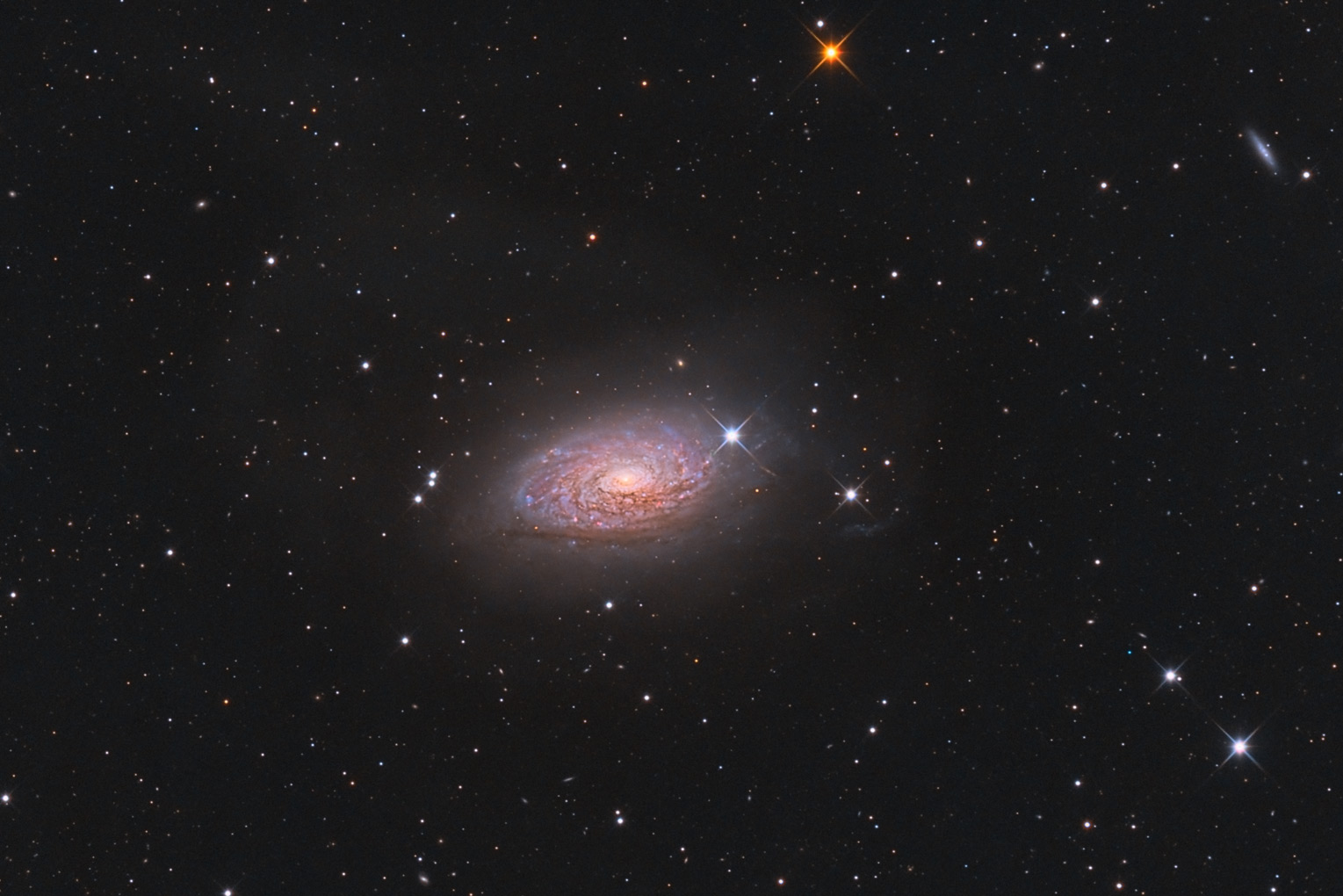
Full web page here: http://www.starscapeimaging.com/page41/index.html
Image of M63 showing the very faint star streams pulled away from the galaxy due to an interaction in the past.
Copyright: Jon Talbot

Full web page here: http://www.starscapeimaging.com/page41/index.html
-
gregbradley
- Ensign
- Posts: 17
- Joined: Thu Feb 10, 2011 8:25 am
The Helix Nebula 10 hours 45 minutes
The Helix Nebula
A beautiful but faint nebula. I took this over several nights and it is 10 hours and 45 minutes total exposure time.
From my home observatory in NSW Australia.
It is an Ha O111 LRGB composite processed to reveal the extent of the nebula which is very extensive.
http://www.pbase.com/gregbradley/image/138141693
Full image here:
http://upload.pbase.com/image/138141171
Greg Bradley.
A beautiful but faint nebula. I took this over several nights and it is 10 hours and 45 minutes total exposure time.
From my home observatory in NSW Australia.
It is an Ha O111 LRGB composite processed to reveal the extent of the nebula which is very extensive.
http://www.pbase.com/gregbradley/image/138141693
Full image here:
http://upload.pbase.com/image/138141171
Greg Bradley.
Last edited by owlice on Sun Sep 18, 2011 1:32 am, edited 1 time in total.
Reason: Attached image, as pbase images don't hotlink well; left original link. Thanks for sharing!
Reason: Attached image, as pbase images don't hotlink well; left original link. Thanks for sharing!
-
terry.hancock
- Ensign
- Posts: 97
- Joined: Sat Jul 17, 2010 4:38 am
-
astromazzo
- Ensign
- Posts: 42
- Joined: Sat Oct 09, 2010 3:03 am
"New technique in astrophography: a Horsehead for true color
I'm pleasure to share with you my new method to shot the night-sky!
Now my setup is ...
two CCDs:
ST-8300M + FW-8300 + H-Alpha -OIII - SII -HBeta + 36x2mm filters
and two Canon 200/1.8 EF L USM (modified by me to work with ST-8300 >>
see my picture).
I was able to shot a dual exposure with a my new method not utilized by
none ( I think becouse of is the Columbus Egg ...).
-->> the exposures were of about 7 hours in total ....
... about the new method:
the images are in 4 channels but the colours
are not "false colours", but "true colours" ...
In the narrowbands images the colours are arctifacts (not real - eye
colours-, are "false colours",
in my images with the same "narrowbands filters", the colours are "true
colours".
I worked with 4 filters two lenses or telescopes.
... but one can work also with one only astrograph-scope-lens.
** I would to share with you this new technique..
plus images of my instruments ... **
... about my others methods ... I would tell you I had an application on IR field
... and a Patent here in Italy about it.
So I'm expert on this filters field...
please read also the follow:
"...One of the first efforts to do tri-color NIR imaging was reported by
Paolo Candy in (Astronomy, May, 2002). He used a series of long-pass
NIR...!"
http://www.astrodon.com/Orphan/astrodon_nir_filters/
Don Goldman is my friend ... and we have a paper about this near-IR
applications ...
This new method ( Visible imaging narrowbands filters ... VINF) is more
simple and more applicable!
Dr Paolo Candy simeis@tin.it
Ci.A.O. Cimini Astronomical Observatory - Italy
http://www.hesnet.net/candy
My best to you and your work!
Now my setup is ...
two CCDs:
ST-8300M + FW-8300 + H-Alpha -OIII - SII -HBeta + 36x2mm filters
and two Canon 200/1.8 EF L USM (modified by me to work with ST-8300 >>
see my picture).
I was able to shot a dual exposure with a my new method not utilized by
none ( I think becouse of is the Columbus Egg ...).
-->> the exposures were of about 7 hours in total ....
... about the new method:
the images are in 4 channels but the colours
are not "false colours", but "true colours" ...
In the narrowbands images the colours are arctifacts (not real - eye
colours-, are "false colours",
in my images with the same "narrowbands filters", the colours are "true
colours".
I worked with 4 filters two lenses or telescopes.
... but one can work also with one only astrograph-scope-lens.
** I would to share with you this new technique..
plus images of my instruments ... **
... about my others methods ... I would tell you I had an application on IR field
... and a Patent here in Italy about it.
So I'm expert on this filters field...
please read also the follow:
"...One of the first efforts to do tri-color NIR imaging was reported by
Paolo Candy in (Astronomy, May, 2002). He used a series of long-pass
NIR...!"
http://www.astrodon.com/Orphan/astrodon_nir_filters/
Don Goldman is my friend ... and we have a paper about this near-IR
applications ...
This new method ( Visible imaging narrowbands filters ... VINF) is more
simple and more applicable!
Dr Paolo Candy simeis@tin.it
Ci.A.O. Cimini Astronomical Observatory - Italy
http://www.hesnet.net/candy
My best to you and your work!
- Attachments
Last edited by astromazzo on Sun Sep 18, 2011 7:06 pm, edited 1 time in total.
-
BERNIER Francois
- Asternaut
- Posts: 6
- Joined: Sun Jul 24, 2011 6:21 am
NGC7635 - BUBBLE Nebula
NGC 7635, also called the Bubble Nebula, Sharpless 162, or Caldwell 11, is a H II region emission nebula in the constellation Cassiopeia. It lies close to the direction of the open cluster Messier 52. The "bubble" is created by the stellar wind from a massive hot, 8.7 magnitude young central star, the 15 ± 5 M SAO 20575 (BD+60 2522).

Full image here:
http://francois.bernier.fr.free.fr/news/GK300.htm
http://francois.bernier.fr.free.fr/phot ... 9-2011.jpg
BERNIER François

Full image here:
http://francois.bernier.fr.free.fr/news/GK300.htm
http://francois.bernier.fr.free.fr/phot ... 9-2011.jpg
BERNIER François
Re: Recent Submissions
http://www.erren3D.de

An Artist View on Kepler 16b and the 2 Stars.
http://www.erren3d.de/APOD/Kepler-16b.jpg

An Artist View on Kepler 16b and the 2 Stars.
http://www.erren3d.de/APOD/Kepler-16b.jpg
Re: Recent Submissions
Re: Recent Submissions
That's a beautiful Rosette Nebula image, Terry Hancock. I'd like to say thank you to Andy D'Arienzo, too, for his part in the collaboration.
That's a fine Rho Ophiuchi Nebula complex, Manuel Jung.
Chris W. Purcell and Erik J. Tollerud, I like your Sagittarius-Milky Way Collision Effects illustration.
I like the illustration of the Tattoine planet Kepler 16b and its two stars, but I'm not quite sure if M Erren is a real person that I can thank for his efforts.
Ann
That's a fine Rho Ophiuchi Nebula complex, Manuel Jung.
Chris W. Purcell and Erik J. Tollerud, I like your Sagittarius-Milky Way Collision Effects illustration.
I like the illustration of the Tattoine planet Kepler 16b and its two stars, but I'm not quite sure if M Erren is a real person that I can thank for his efforts.
Ann
Color Commentator
Re: Recent Submissions
NGC 6820: Emission Nebula in Vulpecula
http://billsnyderastrophotography.com/?page_id=1521
Copyright: Bill Snyder
[attachment=5]20110829_NGC6820_SII Ha OIII _SHO_For APOD .jpg[/attachment]
NGC752: Open Cluster in Andromeda
Copyright: Greg Parker
[attachment=4]ngc752_APOD.jpg[/attachment]
Pencil Nebula and Cirrus in VELA SNR
http://www.glitteringlights.com
Copyright: Marco Lorenzi
[attachment=3]Pencil_HaOIIIRGB_3000.jpg[/attachment]
Supernova SN2011fe at Maximum Brightness
Copyright: Paolo Berardi
[attachment=2]SN2011fe_frame2.jpg[/attachment]
Sources of Light
http://www.luisargerich.com
Copyright: Luis Argerich
[attachment=1]IMG_2741.jpg[/attachment]
NGC206: Star Cloud in Andromeda Galaxy
http://www.starkeeper.it/NGC206.htm
Copyright: Leonardo Orazi
[attachment=0]NGC206_orazi.jpg[/attachment]
http://billsnyderastrophotography.com/?page_id=1521
Copyright: Bill Snyder
[attachment=5]20110829_NGC6820_SII Ha OIII _SHO_For APOD .jpg[/attachment]
NGC752: Open Cluster in Andromeda
Copyright: Greg Parker
[attachment=4]ngc752_APOD.jpg[/attachment]
Pencil Nebula and Cirrus in VELA SNR
http://www.glitteringlights.com
Copyright: Marco Lorenzi
[attachment=3]Pencil_HaOIIIRGB_3000.jpg[/attachment]
Supernova SN2011fe at Maximum Brightness
Copyright: Paolo Berardi
[attachment=2]SN2011fe_frame2.jpg[/attachment]
Sources of Light
http://www.luisargerich.com
Copyright: Luis Argerich
[attachment=1]IMG_2741.jpg[/attachment]
NGC206: Star Cloud in Andromeda Galaxy
http://www.starkeeper.it/NGC206.htm
Copyright: Leonardo Orazi
[attachment=0]NGC206_orazi.jpg[/attachment]
- Attachments
A closed mouth gathers no foot.
Re: Recent Submissions
Wow, Paolo Berardi! Thank you for that image of SN 2011fe at maximum brightness! The picture looks very nice, and the color of the supernova seems just right for a supernova type Ia!
Ann
Ann
Color Commentator
Re: "New technique in astrophography: a Horsehead for true c
Could you explain what is so great in your method and image? (Maybe I'm missing something here but I saw lots of images of this regions that are much better and taken with much lesser expensive setups). But I'm sure I missing something!astromazzo wrote:I'm pleasure to share with you my new method to shot the night-sky!
... about the new method: ...
Reagrds,
paulo
Re: Recent Submissions
Marco Lorenzi, that's a lovely image of the Pencil Nebula and Cirrus in the Vela SNR! 
I think that the wisps of nebulosity really may be as blue-green as they look here from OIII emission. The Pencil Nebula itself is bicolored, however, and it's very dramatic-looking!
The blue star at lower right is a one of my (numerous) favorite blue stars: It's KX Velorum, a B0III star, intrinsically very bright, possibly about 8,000 solar luminosities in yellow-green light and much brighter if you take its blue and ultraviolet light into account. The star is really very blue, too, and has a magnificent blue color index!
Leonardo Orazi, thanks for portraying a lovely blue part of an otherwise very yellow galaxy, the NGC 206 star cloud and its surroundings in the Andromeda galaxy. I love the way your image brings out individual bright blue stars and small red emission nebulae! Note the contrast between the bright young blue stars and the myriads of much fainter intermediate stars, which provide a quite uniform background of diffuse light, punctuated by intricate dust lanes.
Note the contrast between the bright young blue stars and the myriads of much fainter intermediate stars, which provide a quite uniform background of diffuse light, punctuated by intricate dust lanes.
Luis Argerich, I like your image too. What is the diffuse light in the right part of the image? Is that the Zodiacal light?
Ann
I think that the wisps of nebulosity really may be as blue-green as they look here from OIII emission. The Pencil Nebula itself is bicolored, however, and it's very dramatic-looking!
The blue star at lower right is a one of my (numerous) favorite blue stars: It's KX Velorum, a B0III star, intrinsically very bright, possibly about 8,000 solar luminosities in yellow-green light and much brighter if you take its blue and ultraviolet light into account. The star is really very blue, too, and has a magnificent blue color index!
Leonardo Orazi, thanks for portraying a lovely blue part of an otherwise very yellow galaxy, the NGC 206 star cloud and its surroundings in the Andromeda galaxy. I love the way your image brings out individual bright blue stars and small red emission nebulae!
Luis Argerich, I like your image too. What is the diffuse light in the right part of the image? Is that the Zodiacal light?
Ann
Color Commentator
Re: Recent Submissions
Thanks Ann, yes it's zodiacal light.Ann wrote:Marco Lorenzi, that's a lovely image of the Pencil Nebula and Cirrus in the Vela SNR!
I think that the wisps of nebulosity really may be as blue-green as they look here from OIII emission. The Pencil Nebula itself is bicolored, however, and it's very dramatic-looking!
The blue star at lower right is a one of my (numerous) favorite blue stars: It's KX Velorum, a B0III star, intrinsically very bright, possibly about 8,000 solar luminosities in yellow-green light and much brighter if you take its blue and ultraviolet light into account. The star is really very blue, too, and has a magnificent blue color index!
Leonardo Orazi, thanks for portraying a lovely blue part of an otherwise very yellow galaxy, the NGC 206 star cloud and its surroundings in the Andromeda galaxy. I love the way your image brings out individual bright blue stars and small red emission nebulae!Note the contrast between the bright young blue stars and the myriads of much fainter intermediate stars, which provide a quite uniform background of diffuse light, punctuated by intricate dust lanes.
Luis Argerich, I like your image too. What is the diffuse light in the right part of the image? Is that the Zodiacal light?
Ann
Did you find scorpius at the top? I know you like that constellation
-
astromazzo
- Ensign
- Posts: 42
- Joined: Sat Oct 09, 2010 3:03 am
Re: "New technique in astrophography: a Horsehead for true c
paulobao wrote:Could you explain what is so great in your method and image? (Maybe I'm missing something here but I saw lots of images of this regions that are much better and taken with much lesser expensive setups). But I'm sure I missing something!astromazzo wrote:I'm pleasure to share with you my new method to shot the night-sky!
... about the new method: ...
Reagrds,
paulo
My image not want to be the best ... the clearest or other competion you know ... here there is a new concept in imaging:
the picture is a true color and not false color ... a new technique. I work in Italy and not in a remote dark place ... but my new technique is simple and show the way to natural color, not arctifact or false like that you see in other images.
I not used electronic filters like that you can found in commercial softwares ...
Salutissimi.
Paolo
Re: Recent Submissions
Thank you Ann! I'm glad for your appreciation. I attempt to preserve stars colours during non-linear level stretching. It's a bit difficult for SN extremely brightness.Ann wrote:Wow, Paolo Berardi! Thank you for that image of SN 2011fe at maximum brightness! The picture looks very nice, and the color of the supernova seems just right for a supernova type Ia!
Ann
On August 31, I capture SN spectrum with a diffraction grating. Wavelenght and relative intensity calibrated profile:
shows actually a great intensity of blu spectral region. I might be wrong but continuum seems similar to O type class star (with some broaded absorbing lines).
Best regard!
Paolo
Re: Recent Submissions
Thank you so much for the spectrum of the supernova, Paolo! That's so interesting. I note that the spectrum is from August 31, less than a week after the initial explosion. Supernovae tend to get redder over time. Still, the color from August 31 looks quite remarkably blue to me.
Ann
Ann
Color Commentator
Re: Recent Submissions: 2011 September 16-18
Ann, I understand and what you say is confirmed by spectra evolution:
Graphic from ARAS (Astronomical Ring for Access to Spectroscopy) page:
http://astrosurf.com/aras/surveys/super ... e/obs.html
Thank you!
Paolo
Graphic from ARAS (Astronomical Ring for Access to Spectroscopy) page:
http://astrosurf.com/aras/surveys/super ... e/obs.html
Thank you!
Paolo

